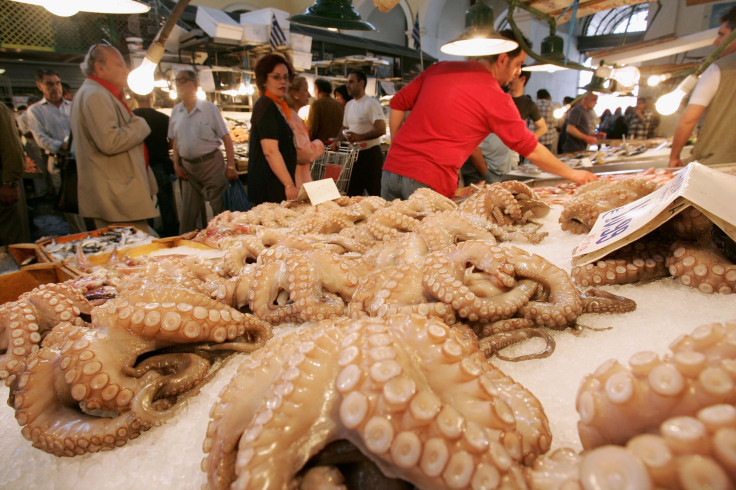Long Island Food Businesses Charged With Mislabeling Squid As Octopus

A father-son duo and their two Long Island Food processing units were charged for selling over 113,000 pounds of squid across the country after falsely labeling it as octopus, a release from the Department of Justice said Wednesday.
Roy Tuccillo Sr., 58, and his son, Roy Tuccillo Jr., 31, from Jericho, Nassau County, and two of their Westbury food processing and distribution companies, Anchor Frozen Foods Inc. and Advanced Frozen Foods Inc., were indicted.
The four defendants were accused of importing giant squid from Peru and trying to market and sell it to grocery stores as octopus, according to a release from the Justice Department and the National Oceanic and Atmospheric Administration (NOAA). Officials looked into the issue of mislabeling with help from the U.S. Food and Drug Administration, a report from Newsday said.
The indictment was announced by the acting Assistant Attorney General Jeffrey H. Wood for the Justice Department’s Environment and Natural Resources Division, and James Landon, director of NOAA's Office of Law Enforcement (OLE).
“NOAA’s Office of Law Enforcement is dedicated to enforcing federal marine resource laws, including the Lacey Act and its provisions on mislabeling,” Landon said. “This investigation is a great example of how we collaboratively work with other federal partners, such as the Food and Drug Administration, to combat seafood fraud.”
The defendants were charged with four substantive Lacey Act violations and conspiracy to commit wire fraud and violate the Lacey Act — a 1900 law under which trafficking illegal wildlife is banned. After amendments, the law now governs the possession, transport, and sale of fish, wildlife and plants. The Act also prohibits false descriptions of fish when it is transported and sold through interstate commerce.
According to the press release, the defendants fraudulently imported, processed, marketed, sold, and distributed over 113,000 pounds of squid labeled as octopus for over three years. They were also charged with four counts of defrauding grocery stores in New Jersey and Massachusetts.
Octopus and squid are two distinct species of marine life. There is a great difference in their taxonomy, habitat, and physical characteristics, the press release said. According to laws made by the U.S. Food and Drug Administration, while selling squid, food companies are permitted to market it either by its name or as calamari. When squid is served as food, it is known as calamari. But in the case of octopus, it should be marketed by the same name. Octopus has a greater retail value than squid.
The case is being prosecuted by Trial Attorney Ryan Connors and Senior Trial Attorney David Kehoe of the Justice Department’s Environmental Crimes Section.
The defendants or their attorneys were not available for comment.
© Copyright IBTimes 2025. All rights reserved.





















